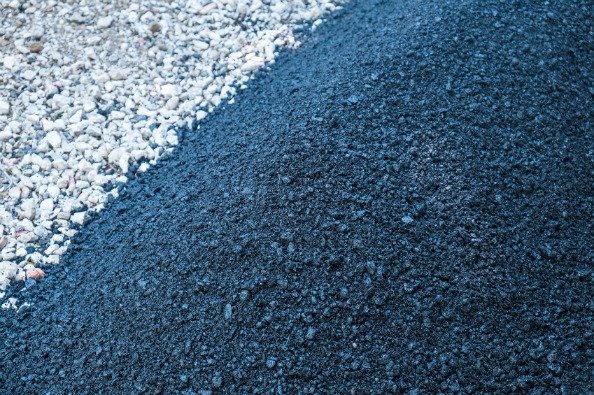If you seek construction material for paving your driveway, you might get confused about what is better to choose. Crushed concrete and asphalt remain good and widespread options for a driveway construction project. We’ll try to compare crushed asphalt vs. crushed concrete in the article below. But first, check out the small asphalt crusher – this machine is pretty compact and powerful to shred concrete, wood, asphalt, domestic waste, and other natural materials.
What is crushed asphalt?
Generally, asphalt is made from a natural material called petroleum, and its texture is relatively sticky. Asphalt remains the most common material for paving driveways and roads all around the globe. At the same time, crushed asphalt is produced from reused asphalt that has been served as a road. Crushed asphalt is sometimes referred to as Recycled Asphalt Pavement (RAP) since this material is fragmented until it becomes gravel. RAP appears as a durable, affordable, and eco-friendly construction material.
What is crushed concrete?
Concrete has always been commonly used in building projects worldwide. This construction material is made by combining cement with sand, gravel, and crushed stone or rock. Unfortunately, concrete isn’t biodegradable, meaning it just takes up significant space in landfills after demolishing old buildings. Since then, concrete recycling has made sense for multiple constructors. Crushed concrete aggregate is recycled by putting material into a crusher, resulting in a more eco-friendly and renewable resource that can be reused in several ways.
Crushed concrete vs. crushed asphalt driveway
They are both more affordable than their closest counterparts for crushed concrete vs. crushed asphalt. Even though these materials are cheaper than standard concrete and asphalt, crushed asphalt is considered more cost-effective than crushed concrete.
Crushed asphalt and crushed concrete aggregate are quite universal materials – they can be applied to either DIY or professional construction. In airports, walkways, driveways, pathways, and retaining walls and runways are usually made from recycled concrete and asphalt. One more important note – both materials are renewable resources. You can keep your mind calm so that the use of crushed concrete and crushed asphalt won’t damage the environment.
If you consider paving a driveway, what material you should utilize depends on your requirements, preferences, and money. Keep in mind that these materials differ in a hue.
Concrete is grey in appearance, while asphalt tends to feature a darker, close to black color. For some people, pathways made from dark crushed asphalt are more aesthetically pleasing than grey concrete driveways. Another distinctive sign of crushed concrete vs. asphalt millings for driveway is that asphalt is considered more durable. It makes sense for facilities located in harsh climate conditions. It is worth mentioning that crushed asphalt is also more affordable, so multiple people, who want to complete their building projects on a budget, select this material over others.

